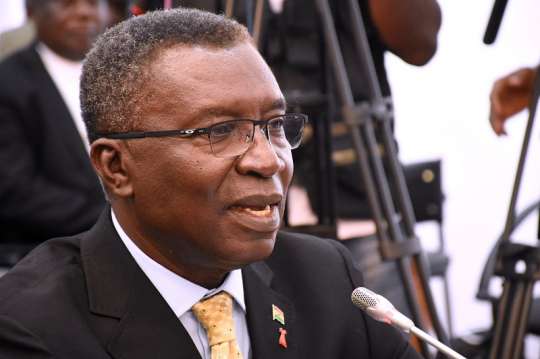Over 900 small-scale miners have been successful vetted by government and given licence to resume work after lifting the ban on small scale mining, Minister for Environment, Science, Technology and Innovation, Prof. Frimpong Boateng has revealed.
According to the minister, government has lifted the ban on all forms of small-scale mining effective Monday, December 17, 2018 after nearly 20 months.
“Having successfully implemented the strategies outlined in the roadmap, the ban on small-scale mining has been lifted as of Monday, December 17, 2018 for miners who have gone through vetting successfully to back to work within the regularised and reformed framework,” the minister said.
Professor Boateng, who is also Chairman of the Inter-Ministerial Committee on Illegal Mining, disclosed this at the outdooring of government’s new policy framework on regularising and reforming mining activities in Ghana.
Lifting the ban follows successful vetting of 1,350 small-scale miners, of which over 900 have now been giving licences to operate.
According to Prof. Boateng, the Committee was able to successfully implement all the strategies to curb illegal mining prior to lifting the ban. He said all equipment of the successfully vetted small-scale miners is to be electronically tagged by the Drivers and Vehicles Licencing Authority [DVLA] for monitoring purposes.
“Lifting the ban will allow mining companies with valid company registration certificates, valid permits and licences from the regulatory authorities, Minerals Commission, EPA and the water resources commission, tax identification numbers from companies which have had their mining equipment licenced and electronically tagged by DVLA, and whose concessions have been vetted and given QR codes to go back to work. Mining equipment, especially excavators and bulldozers not licenced by DVLA will not be allowed for small-scale mining,” the minister added.
Government earlier in June 2017 imposed a six-month ban on small-scale mining as part of efforts to end illegal mining and its related activities which adversely affect the environment, particularly water-bodies and forest reserves. The ban was later extended.





